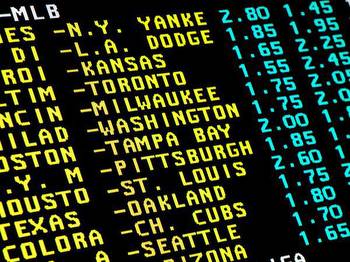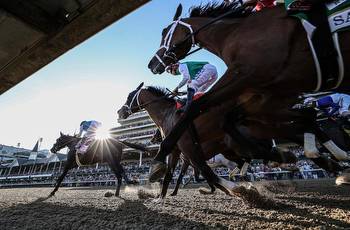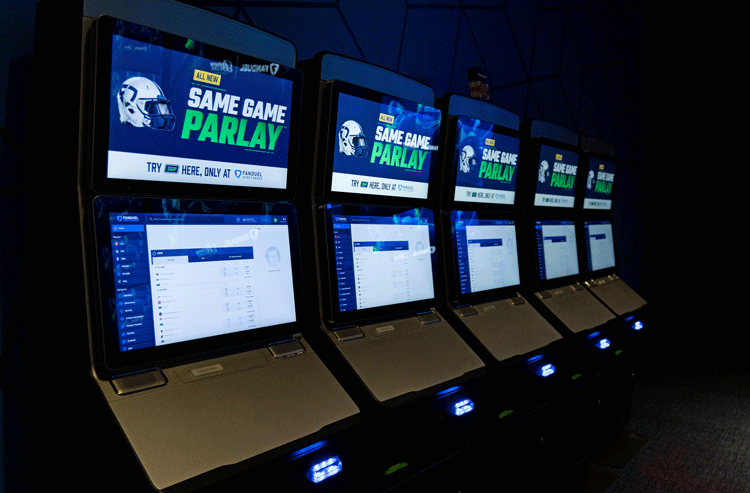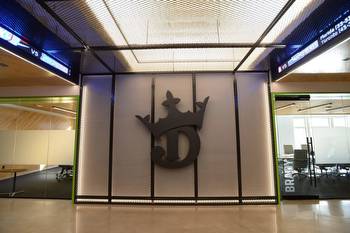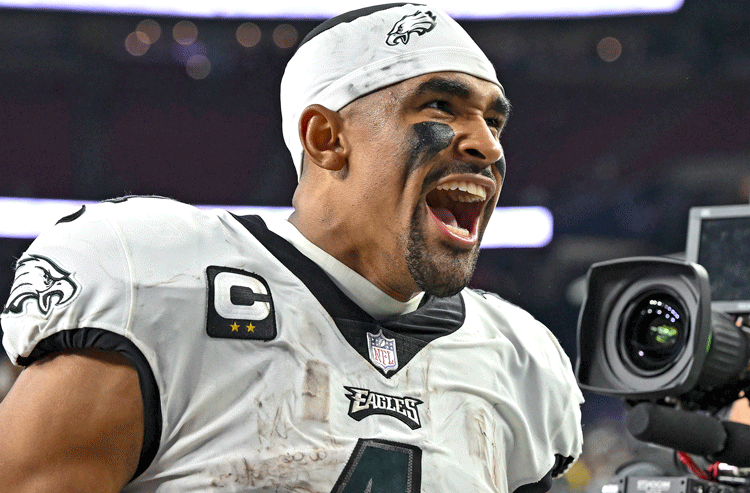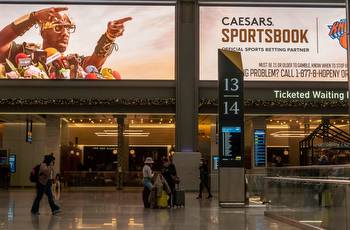Caesars Expects Sports Betting Division To Turn A Profit In 2023

At this time last year, Caesars Entertainment CEO Tom Reeg sent a warning to the sports betting industry on the perils of a cutthroat ad-spending war that he viewed as spiraling out of control.
A frenetic period of irrational spending on advertisements and promotions could not be sustained, Reeg emphasized, pointing to the outsized losses incurred by the company’s digital segment. As a result, Caesars pivoted by cutting advertising costs considerably, while temporarily shelving a popular commercial series featuring football’s Manning brothers.
A year later, Reeg struck a different tone on Tuesday’s 2022 year-end earnings call. Caesars Digital, which runs its online sports betting and iGaming segments, shaved $300 million in losses over last year’s fourth quarter as the division moves toward anticipated profitability in 2023. Caesars Digital nearly broke even on the quarter, reporting an adjusted EBITDA loss of $5 million for the three-month period ended Dec. 31.
“Caesars Sportsbook delivered significantly improved operating results during the fourth quarter, which sets the foundation for a strong 2023,” Reeg said. “We’re anticipating that Digital will be an EBITDA contributor for us this year. And when I say that, I’m talking about overall and both verticals. I expect sports betting and iGaming to be EBITDA positive.”
After years of operating in the red, major sports betting companies are laser-focused on delivering profitability this year. FanDuel, which last year became the first U.S. sportsbook to report a profit in a single quarter, now hopes to generate profitability for the entirety of 2023. Two others, BetMGM and DraftKings, have guided toward profitability in the latter stages of this year. Their efforts to exhibit more discipline in their spending habits have been well-received by Wall Street analysts and investors, who grew frustrated with the heightened losses.
As for profits, the smaller losses highlight Caesars Sportsbook’s strategy to reduce promo and marketing expenses where there are opportunities, Macquarie analyst Chad Beynon wrote in a research note.
Momentum for 2023
In short, Caesars Entertainment believes its digital segment had one of its strongest quarters since the William Hill rebrand two summers ago.
Typically, net revenues from Caesars’ online sports betting division are determined by a combination of volume and hold, then offset by the cost of promotions, said Eric Hession, who serves as president of Caesars Sports & Online Gaming. For the quarter, volume rose 7% year-over-year, while the hold improved 100 basis points (or 1%), Hession noted. Equally important, promotional expenses at Caesars Digital decreased by a whopping 43% from the fourth quarter of 2021.
“The combination of these three metrics resulted in us reporting the highest quarterly net revenue results to date, growing by over 100 percent year-over-year and the smallest adjusted EBITDA loss since rebranding to Caesars Sportsbook,” Hession said.
For all of 2022, the sports betting handle at Caesars Digital topped $12.8 billion, nearly doubling the handle from the previous year, Caesars Entertainment disclosed in a regulatory filing with the U.S. Securities and Exchange Commission. The sports betting hold improved to 5.4%, up from 4.3% a year earlier. Caesars Digital reported an adjusted EBITDA loss of $666 million in 2022, compared to losing $476 million a year earlier.
Over the fourth quarter, Caesars Sportsbook accounted for an estimated 6.2% online sports betting market share (in terms of gross gaming revenue), according to Eilers & Krejcik Gaming, placing it a distant fourth behind market leaders FanDuel, DraftKings, and BetMGM. Caesars’ market share peaked at around 12% over the first half of 2022.
As with top competitors, Caesars continues to benefit from the popular use of same-game parlays, which like all parlays have a higher hold percentage for operators than other bets. When it comes to parlay offerings, whether it is through same-game parlays or products from several different events, the number of multi-wager tickets as a percentage of overall bets continues to rise, Hession said.
Caesars is also doing a better job of merchandising parlay offerings, he emphasized. For instance, Caesars rolled out a new product ahead of the Super Bowl with an automated same-game parlay function, similar to a quick-picks offering in a daily lottery draw.
When Caesars rebranded its online sports betting division two years ago, the company unleashed an ambitious plan to spend $1 billion in growing its digital business. Despite reining in ad spending, Caesars has spent $1.1 billion to date, Reeg disclosed on Tuesday’s call. Still, Reeg indicated Tuesday that Caesars expects to generate in excess of 50% of that in annual EBITDA on the digital side.
While Reeg did not provide an exact breakdown of the split between online sports betting and iGaming, he noted that a higher percentage of the estimated $550 million in earnings will come from sports betting. By 2025, Reeg expects to generate that level of EBITDA for the entire year, while producing comparable levels for “at least a quarter or two” in 2024.
Long-range forecasts
Beynon, the analyst from Macquarie Research, projects full-year 2025 EBITDAR of $419 million from Caesars Digital, up from estimates of $183 million for 2024, according to Macquarie’s models. Macquarie expects Caesars Digital to generate profitability in full-year 2023. Reeg noted that Caesars Digital may report a modest loss in the first quarter due to costs associated with the launch of its Ohio sportsbook in January.
While Truist Securities analyst Barry Jonas reiterated a buy rating on Caesars with a $70 price target, he indicated there could be a potential re-rating of Caesars Digital, as Truist expects the division to move to profitability later this year. Another analyst, Deutsche Bank’s Carlo Santarelli reiterated a price target of $70 on Caesars. Deutsche Bank is making a value adjustment for Caesars’ digital revenue, with estimated 2024 EBITDAR of $1.17 billion from sports betting and iGaming.
Finally, David Bain of B. Riley, reiterated a buy rating on Caesars while lifting his price target to $111. B. Riley previously had a $102 price target on Caesars. If Caesars Digital were valued as a standalone asset, it would be worth about $20 a share, according to Bain.
On Wednesday, the company announced that Caesars Sportsbook is now live in Massachusetts for download and registration. Caesars’ customers will not be able to wager in the state until next month, with the Bay State set to launch online sports betting March 10, ahead of the NCAA Tournament.
Shares in Caesars rose 4.65% on Wednesday to $53.60. Riding the tailwinds from a strong performance on the digital side, Caesars is now up nearly 25% since the start of the calendar year.









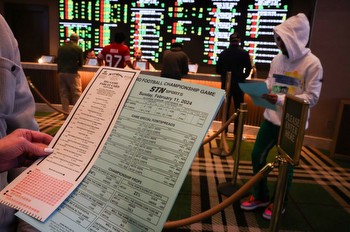



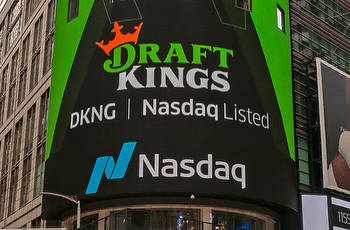
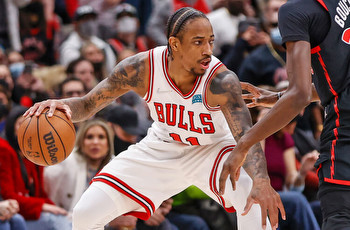

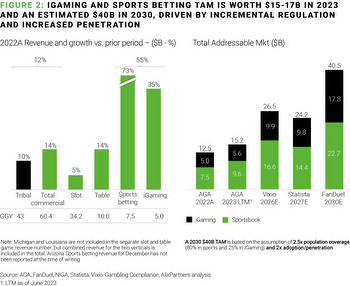
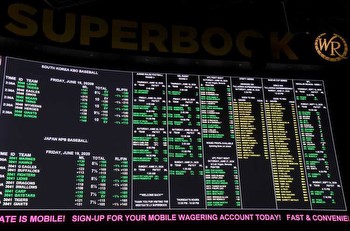
![Sports betting companies battle for customers as NFL season kicks off [Video]](/img/di/sports-betting-companies-battle-for-customers-as-nfl-season-kicks-off-video-1.jpg)


